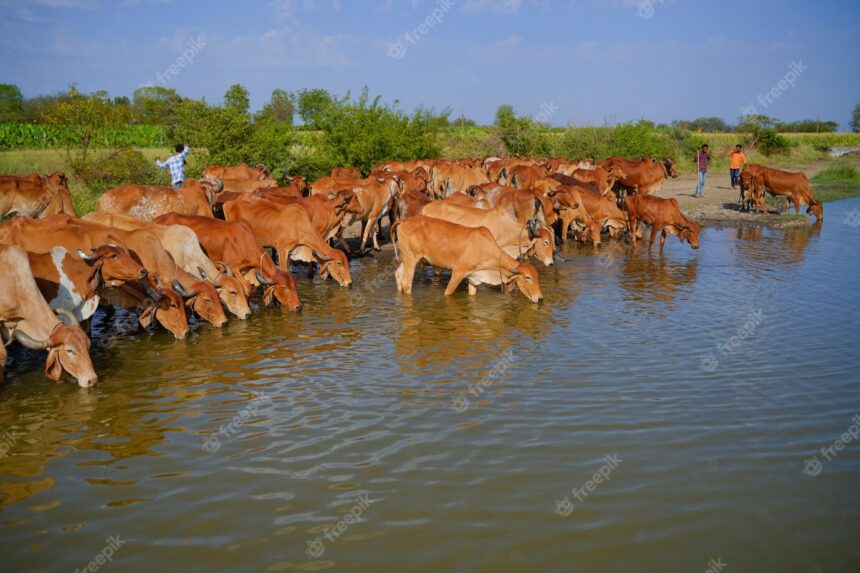Sustainable water management in livestock farming is crucial for ensuring the long-term viability of the agricultural sector in South Africa. As a water-scarce country, South Africa faces numerous challenges related to water availability and quality. Livestock farming, particularly intensive operations, can significantly impact water resources through excessive water consumption, pollution, and degradation of water bodies. Implementing sustainable water management practices is essential to mitigate these impacts and ensure the sustainable development of the livestock farming industry.
Here are some key considerations and practices for sustainable water management in livestock farming in South Africa:
- Water-efficient infrastructure: Farmers should invest in water-efficient infrastructure and technologies. This includes using drip irrigation systems, installing water meters to monitor usage, and implementing rainwater harvesting techniques. Efficient watering systems such as troughs and automatic waterers can minimize water wastage and ensure livestock have access to clean drinking water.
- Rangeland management: Proper rangeland management is crucial for reducing water consumption and preventing soil erosion. Overgrazing should be avoided to maintain healthy vegetation cover, which helps retain water in the soil and promotes water infiltration. Rotational grazing and implementing rest periods for pastures allow for vegetation recovery and contribute to overall water conservation efforts.
- Manure management: Livestock waste, including manure, can contaminate water bodies if not managed properly. Implementing best practices for manure management, such as collecting and storing manure in appropriate facilities, can prevent nutrient runoff and water pollution. Manure can also be utilized as a nutrient-rich fertilizer through proper composting or anaerobic digestion processes.
- Efficient animal husbandry practices: Livestock farmers should adopt practices that improve water-use efficiency in animal production. This includes optimizing feed composition and quality to reduce water requirements, promoting healthier animals that utilize water more efficiently, and implementing effective herd management strategies to minimize water waste.
- Water quality management: Livestock operations should take measures to prevent water pollution by managing runoff from animal confinement areas, avoiding direct access of animals to water bodies, and implementing appropriate buffer zones to filter and treat runoff. Regular water quality testing should be conducted to ensure the safety of water sources for both livestock and surrounding communities.
- Education and awareness: Raising awareness among livestock farmers about the importance of sustainable water management is crucial. Providing education and training programs on water-saving techniques, proper irrigation practices, and the environmental impacts of water misuse can help farmers make informed decisions and adopt sustainable practices.
- Policy and regulation: The government plays a vital role in promoting sustainable water management in livestock farming. Developing and enforcing regulations that govern water use, pollution control, and land management practices can incentivize farmers to adopt sustainable approaches. Offering incentives and subsidies for implementing water-saving technologies and practices can further encourage sustainable water management.
By implementing these practices, livestock farmers in South Africa can reduce their water footprint, minimize pollution risks, and contribute to the overall sustainability of the agricultural sector. It is important to recognize that sustainable water management requires a multi-stakeholder approach involving farmers, policymakers, researchers, and local communities to address the complex challenges associated with water scarcity and livestock farming.
Join 'Farmers Mag' WhatsApp Channel
Get the latest Farming news and tips delivered straight to your WhatsApp
CLICK HERE TO JOIN






